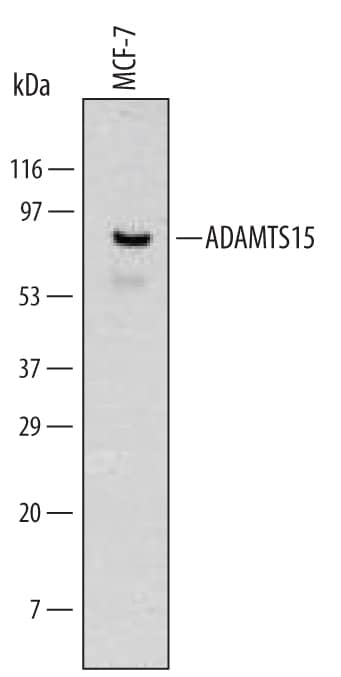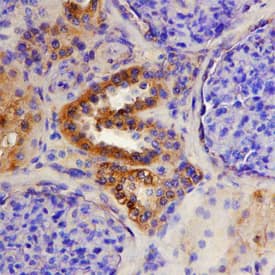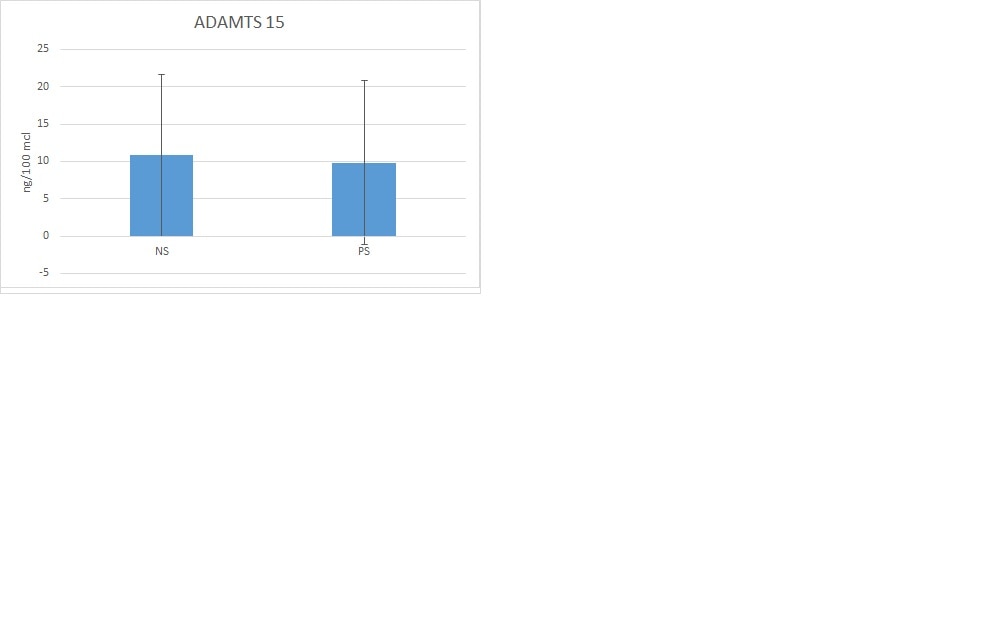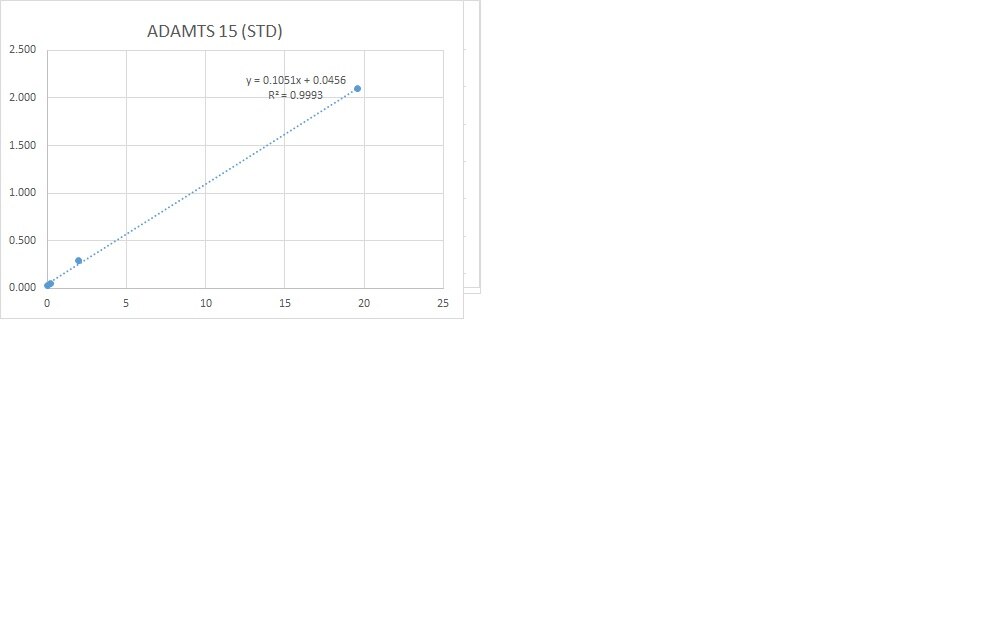Human ADAMTS15 Antibody Summary
Gly18-Cys682
Accession # Q8TE58
Applications
Please Note: Optimal dilutions should be determined by each laboratory for each application. General Protocols are available in the Technical Information section on our website.
Scientific Data
 View Larger
View Larger
Detection of Human ADAMTS15 by Western Blot. Western blot shows lysates of MCF-7 human breast cancer cell line. PVDF Membrane was probed with 2 µg/mL of Human ADAMTS15 Monoclonal Antibody (Catalog # MAB5149) followed by HRP-conjugated Anti-Mouse IgG Secondary Antibody (Catalog # HAF007). A specific band was detected for mature ADAMTS15 at approximately 75 kDa (as indicated). This experiment was conducted under reducing conditions and using Immunoblot Buffer Group 1.
 View Larger
View Larger
ADAMTS15 in Human Kidney. ADAMTS15 was detected in immersion fixed paraffin-embedded sections of human kidney using Human ADAMTS15 Monoclonal Antibody (Catalog # MAB5149) at 15 µg/mL overnight at 4 °C. Before incubation with the primary antibody, tissue was subjected to heat-induced epitope retrieval using Antigen Retrieval Reagent-Basic (Catalog # CTS013). Tissue was stained using the Anti-Mouse HRP-DAB Cell & Tissue Staining Kit (brown; Catalog # CTS002) and counterstained with hematoxylin (blue). Specific staining was localized to cytoplasm. View our protocol for Chromogenic IHC Staining of Paraffin-embedded Tissue Sections.
 View Larger
View Larger
Detection of ADAMTS15 in MCF‑7 Human Cell Line by Flow Cytometry. MCF-7 human breast cancer cell line was stained with Human ADAMTS15 Monoclonal Antibody (Catalog # MAB5149, filled histogram) or isotype control antibody (Catalog # MAB0041, open histogram), followed by Phycoerythrin-conjugated Anti-Mouse IgG F(ab')2Secondary Antibody (Catalog # F0102B).
Preparation and Storage
- 12 months from date of receipt, -20 to -70 °C as supplied.
- 1 month, 2 to 8 °C under sterile conditions after reconstitution.
- 6 months, -20 to -70 °C under sterile conditions after reconstitution.
Background: ADAMTS15
A disintegrin and metalloproteinase with thrombospondin motifs 15 (ADAMTS15) is a secreted multi-domain protease that is primarily expressed in fetal liver and kidney. ADAMTS1, 4, 5, 8, and 15 form a subfamily of ADAMTS proteases that possess aggrecanase activity. These proteins are synthesized as zymogens which have a pro-domain that is removed by furin-like protein convertases. ADAMTS15 functions as a suppressor of tumor growth and invasion. It is downregulated in colon cancer, and its expression in breast cancer correlates with poor prognosis. Within amino acids (aa) 18-682 (which includes the propeptide, peptidase, disintegrin, first TSP-1 and most of the Cys-rich domain), human ADAMTS15 shares 95% aa sequence identity with mouse and rat ADAMTS15.
Product Datasheets
Citation for Human ADAMTS15 Antibody
R&D Systems personnel manually curate a database that contains references using R&D Systems products. The data collected includes not only links to publications in PubMed, but also provides information about sample types, species, and experimental conditions.
1 Citation: Showing 1 - 1
-
PAX7 Targets, CD54, Integrin alpha9beta1, and SDC2, Allow Isolation of Human ESC/iPSC-Derived Myogenic Progenitors.
Authors: Magli A, Incitti T, Kiley J, Swanson S, Darabi R, Rinaldi F, Selvaraj S, Yamamoto A, Tolar J, Yuan C, Stewart R, Thomson J, Perlingeiro R
Cell Rep, 2017-06-27;19(13):2867-2877.
Species: Human
Sample Types: Whole Cells
Applications: Flow Cytometry
FAQs
No product specific FAQs exist for this product, however you may
View all Antibody FAQsReviews for Human ADAMTS15 Antibody
Average Rating: 4.3 (Based on 3 Reviews)
Have you used Human ADAMTS15 Antibody?
Submit a review and receive an Amazon gift card.
$25/€18/£15/$25CAN/¥75 Yuan/¥2500 Yen for a review with an image
$10/€7/£6/$10 CAD/¥70 Yuan/¥1110 Yen for a review without an image
Filter by:
I used this antibody for developing a sandwich ELISA in combination with pAb (cat. AF5149) and protein (cat. 5149). This combination works well for a sandwich ELISA detection human ADAMTS 15 in serum.
I used this protein as a standard for developing an ELISA in combination with pAb (cat. AF5149) and mAb (cat. MAB 5149). This combination works well for a sandwich ELISA detection human ADAMTS 14 in serum.




